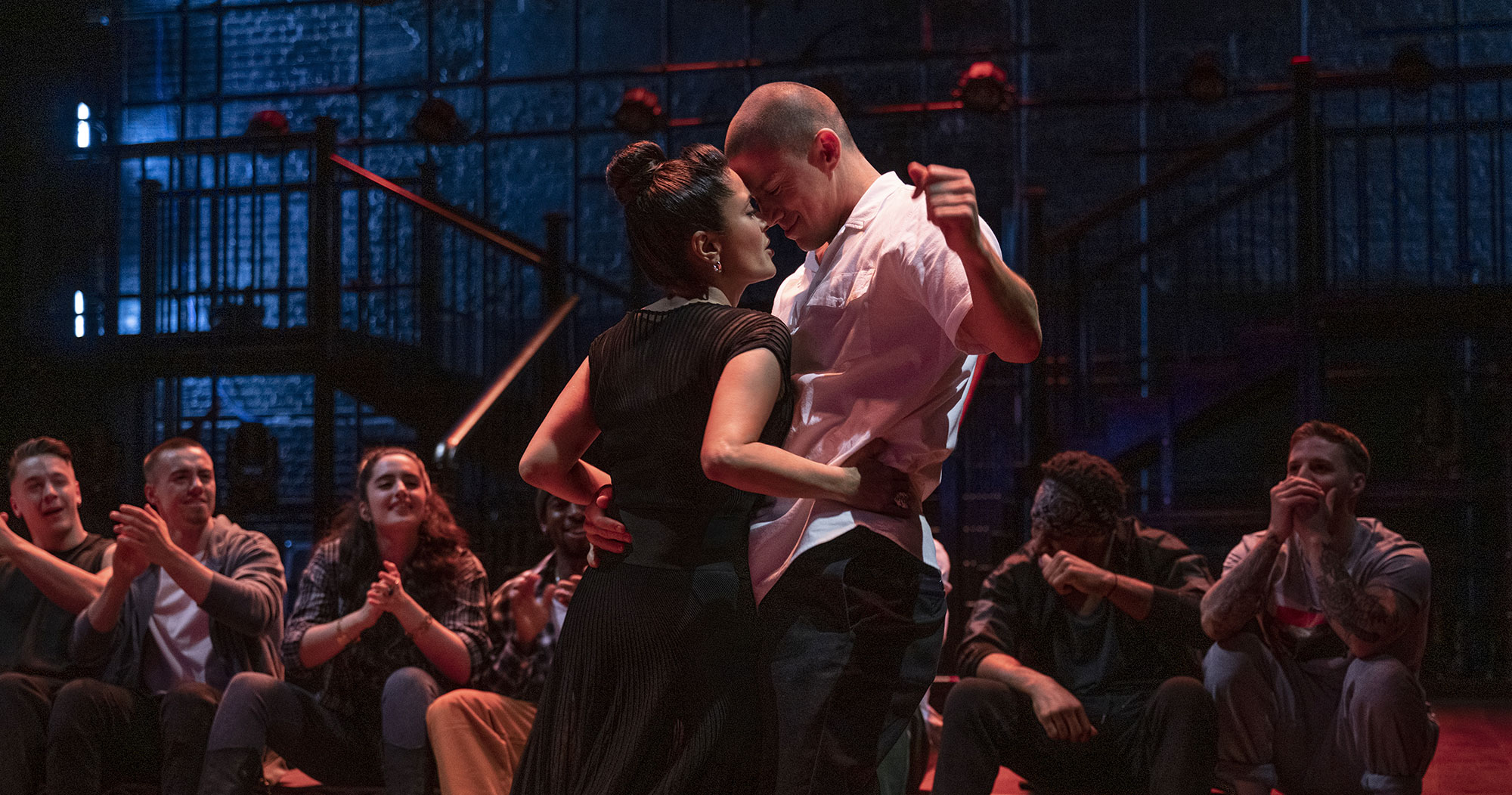Repeating the blissfully perfect, pure ode to pleasure that is Magic Mike XXL would be a fool’s errand, so nearly a decade later––with Steven Soderbergh back in the director’s chair–cinema’s finest stripper-verse is closing out on a more gentle, familiar, innocuous note. Hewing, unexpectedly, closer to a family film at its heart, Magic Mike’s Last Dance offers a more generalized message of the power of dance to engender community. This reliance on plot––and specifically this plot––rings a touch disappointing when considering the franchise’s bolder peaks. But thanks to a couple of memorable set-pieces, this final outing is still sexier than anything the likes of 50 Shades of Grey or Sam Levinson could ever dream up.
Slipping back into (and out of) the comfortable fits of his most beloved character, Channing Tatum’s Mike Lane is in a rut. He has yet to find the love of his life and his furniture business is no more after economic downturn caused by the pandemic. Soderbergh once again weaves in the present to strong effect, a year after delivering the ultimate thriller for our times with Kimi. His entrepreneurial spirit punctured, Mike is working a dead-end bartending gig that, at the very least, gives him face time with some high-level clientele. The latest to utilize his services is Maxandra Mendoza (Salma Hayek Pinault), who is throwing a fundraiser in her Florida home while dealing with a divorce from her British media mogul husband. After overhearing about Magic Mike’s past life and unique therapeutic powers via the art of stripping, she asks him for one last dance. He succumbs, and the euphoric pleasures lead to her next great idea: ask him to liven up a theater she owns with an ultimate one-night-only performance.
Taking the conventional form of a location-hopping sequel––albeit one where the location itself isn’t very utilized––everyone packs up to head to the rainy streets of London where we get to learn more about Mendoza’s family life. This includes her adopted daughter Zadie (Jemelia George), also acting as the film’s preternaturally observant narrator, and Victor (Ayub Khan Din), their chauffeur, butler and more-or-less father figure for the last eighteen years. With the assertive Mendoza by his side as producer, the newly crowned theater director Lane puts the pieces of the show together. They assemble the Avengers of strippers, hailing from Italy to their local street performers, while reimagining the theater’s dusty, antiquated, chauvinistic period piece as the ultimate stripping experience all in service of celebrating female empowerment by making dreams come true. Following up a film that can best be described as a pure hangout movie about the power of friendship and the importance of satisfaction through sexual desire, writer Reid Carolin’s script starts to feel regressively plot-driven as we hit each expected beat, including a few snags in their plan that feel more than forced. The tenets of MMXXL’s iconic Joe Manganiello convenience store scene is even repeated to bewilderingly lackluster ends.
Even if much of the middle feels like a humdrum ticking of the boxes, the legendary Peter Andrews and choreographers Alison Faulk and Luke Broadlick know how to pull off what the franchise does best, bookending the film with two of the franchise’s finest stripping sequences. The romantic thread between Tatum and Hayek Pinault may never convince beyond its physical pull, but their early connection sparked by that first dance––their bodies melding together, the camera tilting to fully maximize every inch of their spectacularly sensual physicality––is a beauty to behold. The finale, undermined only by over-cutting to feign an emotional climax, possesses a rain-soaked feat of carnal pleasure that would make Adrian Lyne smile forty years on from Flashdance.
As for the rest of the cast, a set of all-too-brief, buffering cameos from some familiar faces only makes the contrast of the lack of personality in Last Dance all the more apparent. With our two leads doing the bulk of the heavy lifting, this new cadre of dancers aren’t given an ounce of character, aside from the play’s lead (Juliette Motamed), who is equally fed up with its sexist viewpoint and stays onboard for this new iteration. As Mike contemplates his life as a stranger in a strange land, there is an emptiness to his journeys here that zaps the film of the breezy charisma the first two films were built on.
Throughout the franchise, not to mention some of his other work, Soderbergh can often use a narrative hook as window dressing for other interests; this outing is no different. With Mike moving into Mendoza’s home, the film turns into a family dramedy in spurts, as she poorly attempts to foster a relationship with her daughter. This goal blinds any sort of empathy for Victor, who has witnessed every moment of their lives for two decades. Inviting a few tender moments, it’s peculiar territory that’s not mishandled but more at odds with the rest of the film (and previous entries), particularly when it leads to attempted comedy in the finale.
As a sendoff for Magic Mike, Soderbergh packs in enough greatest hits not to botch the landing, but after one watch it wouldn’t be surprising if the first two installments are on a heavier rotation. Magic Mike’s Last Dance has an ample dose of humor, heart, and chiseled abs, but one wishes the trilogy capper felt more than perfunctory.
Magic Mike’s Last Dance opens in theaters on February 10.

